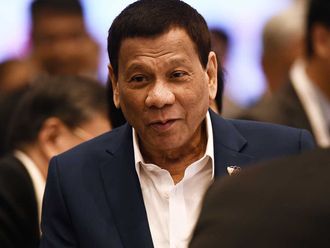
Manila: The presidential palace of the Philippines has announced that it plans to conduct a review of a security pact with the United States.
Presidential Spokesperson Edwin Lacierda told how an ad hoc panel is currently reviewing the Visiting Forces Agreement (VFA) between the Philippines and the United States, but he was quick to add that ending the accord was not part of the deal.
"That (VFA) will be studied by the DFA in consultation with the President. We have not made a policy discussion on that. The stand right now of the DFA is that the agreement is open for review," Lacierda said.
The VFA provides the general framework that has enabled the Philippines and the US to conduct joint security exercises in 1999. At the core of the agreement is the 1951 Mutual Defence Treaty which formalised the security alliance between the two allies.
Several Filipino politicians, led by Senator Miriam Defensor-Santiago and then senator-now President Benigno S. Aquino III, had wanted the VFA to be abolished and replaced with an accord that regards both the US and the Philippines equally.
The VFA allows forces from the Philippines and the US to train jointly as security allies, but Filipino politicians have questioned whether Manila is getting its fair share in exchange for allowing American forces to use the country for training its troops.
Presently, the US provides most of the Philippines’ military hardware and force training. In exchange, Americans are allowed to maintain non-permanent bases such as those in Maguindanao, Sulu and Basilan.
Lacierda explained that the Presidential Commission on VFA is conducting a review of the agreement even as a joint resolution has been re-filed in Congress asking Foreign Affairs Secretary Alberto Romulo to issue a notice of severance of the bilateral agreement to Washington.
Senator Defensor-Santiago maintains that, on close study, an act of Congress alone, without necessarily a presidential edict, is enough to terminate the VFA.
Citing a US court ruling, she said that Congress was the correct authority to end the treaty and had properly issued the terminating act, on the grounds that a treaty was the law of the land.











